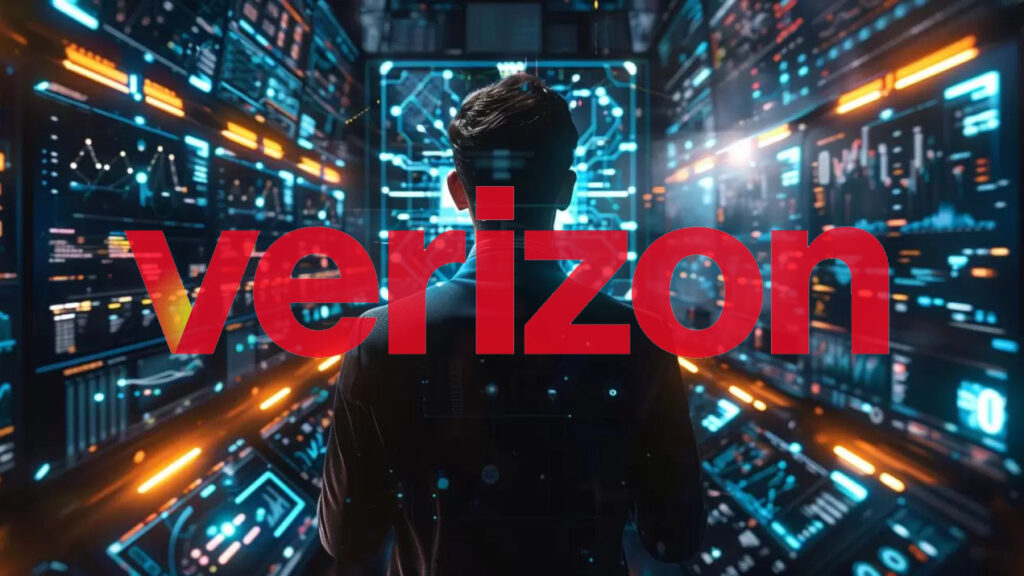Google Cloud Next shows how network operators and vendors are using AI for telecom
We already know that businesses are pushing hard to figure out how artificial intelligence can benefit them. In telecom specifically, an Nvidia survey earlier this year found that 37% of respondents said their companies were investing in AI for telecom to improve network planning and operations, and 33% said that there had already been investments in AI for telecom field operations.
At this week’s Google Cloud Next event, some of Google Cloud’s specific work on advancing the use of AI for telecom is being highlighted, as well as AI for enterprises in other verticals. Here are three perspectives on how companies are leveraging Google Cloud AI for telecom.
–Verizon has integrated Google Cloud’s generative AI into customer operations, which the two companies said has led to “95% comprehensive answerability for customer inquiries” and “demonstrably more efficient and effective customer care interactions.” Verizon is making use of a Google Cloud conversational AI agent that leverages Google Cloud’s Vertex AI, Gemini models and Agent Assist Panel in order to give its customer service reps “real-time, context-aware, and personalized answers” to customer questions, as opposed to the reps having to do manual searches of knowledge bases.
Verizon has deployed this across 28,000 customer care reps and retail stores. Additional features like automated summaries of conversations, and automated follow-up action reminders, are also in the process of being rolled out. Those internal AI agents are in addition to several genAI tools that are directly customer-facing and use Google’s Gemini models for virtual assistants which use natural language.

“Our collaboration with Google Cloud and the integration of Gemini into our customer care platforms mark a significant advancement in our commitment to providing exceptional customer experiences,” said Sampath Sowmyanarayan, CEO of Verizon Consumer. “The tangible results demonstrate the power of AI to enhance efficiency and empower our customer care teams.”
“The impact of Gemini on Verizon’s customer service operations is a testament to our deep partnership and Verizon’s commitment to continued innovation,” said Thomas Kurian, CEO of Google Cloud. “These results demonstrate the potential of AI to not just improve operations, but to create more meaningful and helpful interactions for customers everywhere, ultimately driving significant value for businesses.”
-“We’re really trying hard to build an autonomous network which is going to be obviously driven by AI more and more over time,” said David Sauvageau, director of software development, data and AI for Bell Canada, in a briefing call prior to Google Cloud Next.
In general, he continued, the network operator see AI as a “fundamental building block for the future of telecom, for innovation, for customer operations and for network operations.”
He said in the short-term, Bell Canada is prioritizing AI applications for telecom which “really focus on optimizing our customer experience and network ops.” For the latter in particular, Sauvageau said, “Our goal is really to leverage all the data that we have available in AI in order to predict and prevent issues before they actually impact our customers. So, really moving from reactive to preventive customer experience.”
Additionally, Sauvageau said, that Bell Canada believes AI is crucial for managing the increased complexity of telecom networks. “We need to be much more efficient, [and have] have faster innovations in areas like edge computing, digital twin, 6G or any other future network technologies. And ultimately … our goal is to build and accelerate the development of our AI-powered autonomous networks.”
-Razvan Teslaru, VP and head of strategy and portfolio for cloud software and services at Ericsson, said that the use of AI for telecom encompasses both increased efficiency and increased monetization—the latter being magic words for the telecom industry right now.
Autonomy is both about enabling differentiated connectivity at scale, he said, and monetization of that differentiated connectivity. At this year’s Mobile World Congress Barcelona, one of the things Ericsson spotlights was how it integrates its service orchestration with Google Cloud and its Vertex AI, Teslaru noted.
It’s now possible, he said, for a user to express their intent in natural language: A request to configure a specific type of connectivity to, say, a hospital, over a dedicated slice. “You can have Gemini interpret that intent and break it into service orders. … Then AI agents can take over these service orders and take them into execution, and also observe the results, so we can take corrective action autonomously,” he said.
So ultimately, then, network autonomy is about delivering personalized (or differentiated) connectivity with efficiency, while also doing so at a scale that means more effective and large-scale monetization.
Google Cloud emphasizes AI agents for telecom
Erwan Menard, director (outbound) of product management for cloud AI at Google Cloud, said that “When we look ahead, we envision networks that can largely manage themselves through the use of intelligent software agents.” He continued: “Think of these agents as digital experts that can automatically handle tasks like network configuration, problem solving and resource allocation.This would free up telcos from any routine operational burden, allowing human experts to focus on innovation and new services, ultimately leading to greater efficiency and productivity in network operations.”
In particular, he emphasized, telecoms face the unique challenge of having a “mission-critical duty to maintain knowledge over technologies which could be in service for decades. So the notion of being able to tap accurately through the knowledge of the company to help onboard a new resource or to assist somebody who has a decision to make—technical or business—is quite an important challenge in the telecom industry.” Google Cloud’s Google Agentspace was designed for such knowledge-heavy industries, Menard continued, to retrieve information across multiple systems with the idea of using “agentic workflows to be able to invest a new way of work.”
This week, the company is spotlighting its a new Agent Gallery, so that employees across the telecom organization can get personalized suggestions on which AI agents would be useful to them—either out-of-the-box from Google Cloud, agents built by the company or third-party AI agents. Google Cloud is also offering the ability to design and build agents with a no-code interface, in which people can essentially walk through a series of steps and “convert that sequence into an agent that then becomes your personalized assistant,” Menard explained.

